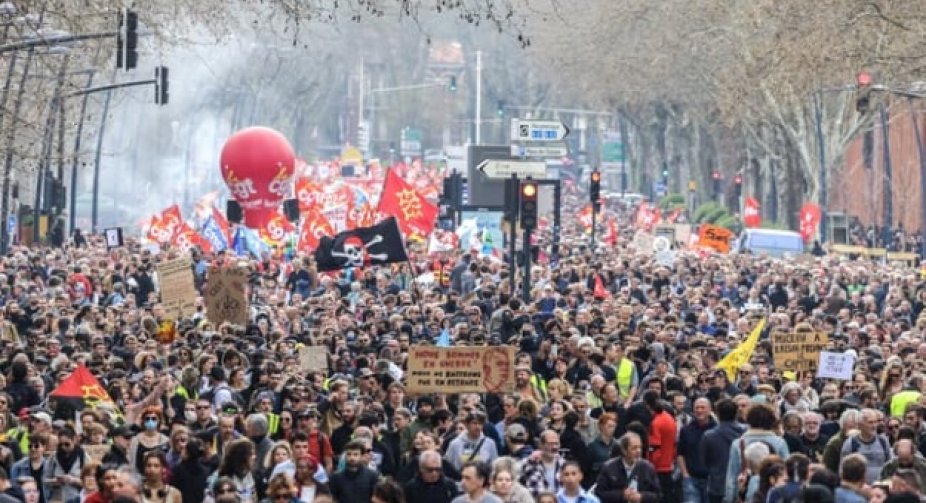Hundreds of thousands of people took part in demonstrations against the pension reform across France on Thursday, with the actions turning violent in some places.
This is reported by the BFMTV channel.
According to the CGT trade union, 3.5 million people demonstrated across France on Thursday - the same number as during the record-breaking protests on March 7. The authorities, for their part, claim 1.089 million people on the streets across the country (on March 7, the authorities counted 1.28 million protesters).
It is reported that 800,000 people took part in the Paris march. The main police department reported about 119,000 demonstrators in the French capital.
Riots at demonstrations occurred in several cities. The police department, which has identified "about a thousand" radical elements in the capital, reported 26 arrests as of 18:00.
In Nantes and Rennes, there were also clashes between demonstrators and police, who fired tear gas and water cannons. In Lorient, in the department of Morbihan, the target of the shelling was a police station. More or less intense tension was also observed in Toulouse, Lille, Bordeaux and Dijon.
Protesters also set fire to the main entrance to Bordeaux City Hall.
According to Reuters, French Interior Minister Gérald Darmanin said that 149 police officers were injured and 172 people were arrested across the country. Dozens of protesters were also injured, including a woman who lost her thumb, in the Normandy city of Rouen.
"There are thugs, often from left-wing forces, who want to destroy the state and kill policemen," Darmanen said after visiting Paris police headquarters on Thursday night.
Small groups continued to clash with police in Paris until late at night, lighting bonfires in the city center.
Unions fear the protests could become more violent if the government does not heed growing public anger over the pension reform.
"This is a response to the president's lies and his inexplicable stubbornness," said Marilise Leon, deputy general secretary of the CFDT union.
Unions have called for regional action over the weekend and new nationwide strikes and protests on March 28, the day Britain's King Charles is due to arrive in Bordeaux by train from Paris.
The latest wave of protests has become the most serious challenge to presidential power since the "yellow vest" uprising four years ago. Polls show the vast majority of French oppose the pension legislation and the government's decision to push it through parliament without a vote.
Speaking on Wednesday, Macron stood by his stance, saying the new law was necessary and would come into effect later this year.
He rejected calls for the resignation of Prime Minister Elizabeth Bourne, who has been at the forefront of pension reform.


